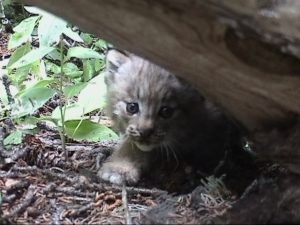Colorado is known for its stunning landscapes and love for animals. Many residents enjoy the companionship of pets, but Colorado law places restrictions on what animals can be kept as pets. If you’re wondering about owning an exotic animal, particularly a primate like a monkey, it’s crucial to understand the regulations in place. This article will clarify whether you can have a monkey as a pet in Colorado and explain the reasons behind these laws.
Colorado Parks and Wildlife (CPW) clearly states that wildlife species are considered a public resource and cannot be privately owned as pets, unless under specific licenses for rehabilitation purposes. This is primarily for the well-being of the animals themselves. Wild animals are not suited for domestic environments; they retain their natural instincts and behaviors, which can lead to them becoming distressed, destructive, or even dangerous in a home setting. Furthermore, wildlife can carry diseases that could be harmful to humans and domestic animals. It’s always in the best interest of wildlife to remain in their natural habitats.
Beyond native wildlife, Colorado also prohibits the ownership of certain exotic species, and monkeys are explicitly included in this category. Primates, along with exotic pigs, certain frog species, and exotic bovids like wildebeest, are illegal to possess as pets in Colorado. The reasons for these prohibitions are multifaceted. Some restrictions are in place to prevent the spread of diseases that these animals might carry, which could impact both humans and native animal populations. Other prohibitions aim to protect Colorado’s delicate ecosystems. Introducing non-native species can have devastating consequences on native habitats and wildlife. For instance, non-native species can become invasive, outcompeting native species for resources or preying on them, as seen with American bullfrogs impacting native leopard frogs in Colorado.
 Sign warning against feeding wildlife in Colorado, emphasizing the prohibition of keeping monkeys and other exotic animals as pets in Colorado to protect both animals and the environment.
Sign warning against feeding wildlife in Colorado, emphasizing the prohibition of keeping monkeys and other exotic animals as pets in Colorado to protect both animals and the environment.
For a comprehensive list of prohibited pets and wildlife in Colorado, and to understand more about why wild animals should remain in the wild, you should consult the CPW’s resources. Their “Exotic Pets and Prohibited Wildlife” brochure and “Don’t Domesticate” webpage offer detailed information. These resources also explain why it’s crucial not to feed wildlife or attempt to care for injured wild animals at home. Licensed rehabilitation facilities are equipped and authorized to provide proper care for injured wildlife. Information regarding special licenses for such facilities and similar entities can be found on the CPW website. Additionally, for those interested in importing animals into Colorado (though not prohibited exotic pets), the Colorado Department of Agriculture’s website provides information on animal import requirements.
In conclusion, owning a monkey as a pet in Colorado is illegal. Colorado law prioritizes the protection of wildlife, native ecosystems, and public health by prohibiting the private ownership of monkeys and other exotic animals. It is essential to respect these regulations and choose pets that are legal and suitable for domestic environments in Colorado. Always consult official sources like Colorado Parks and Wildlife for the most accurate and up-to-date information regarding pet ownership laws in the state.
